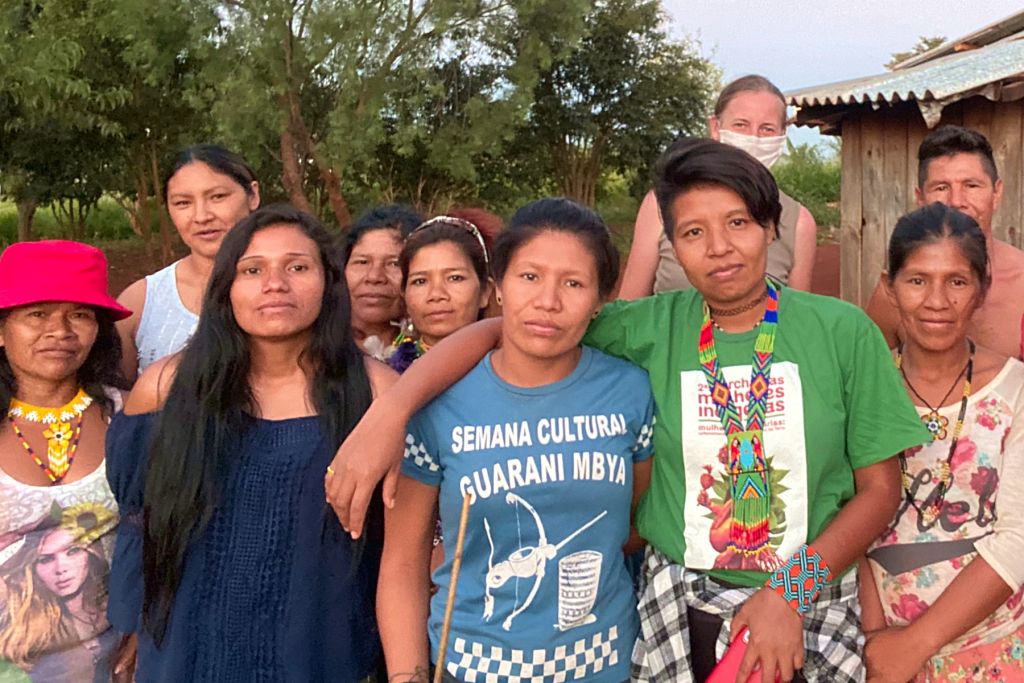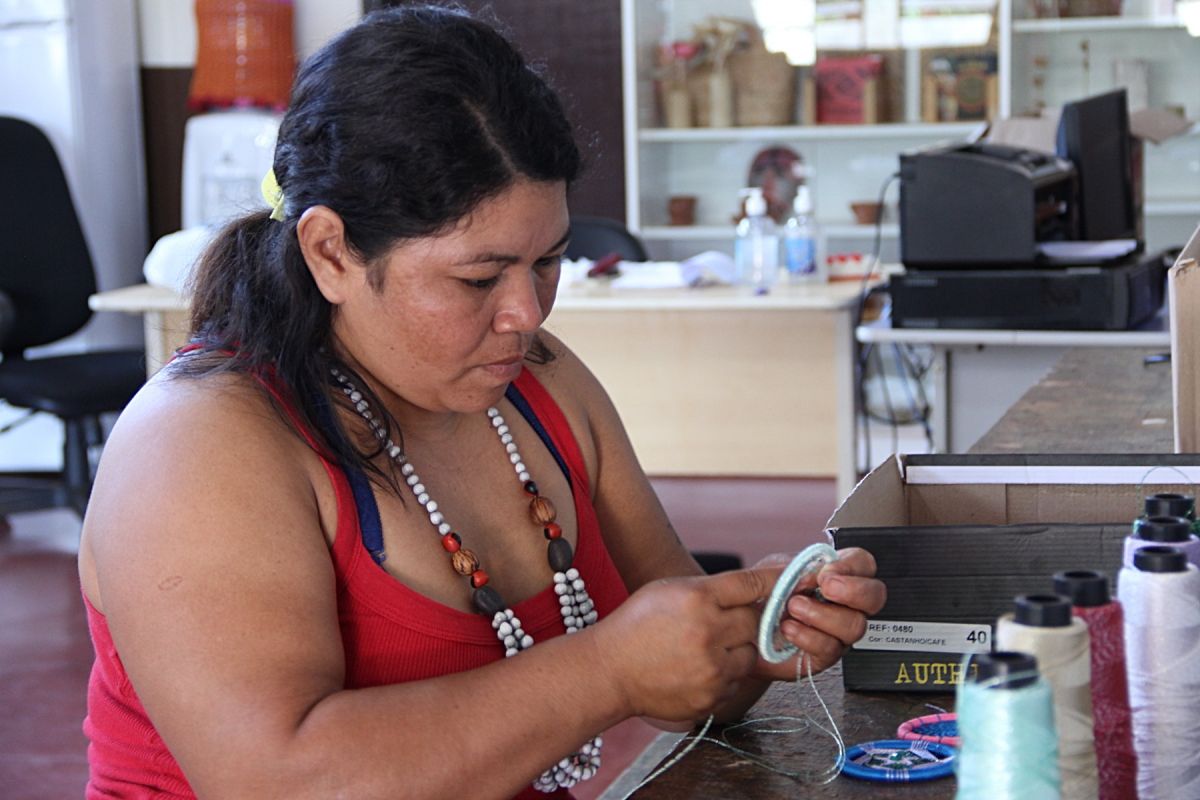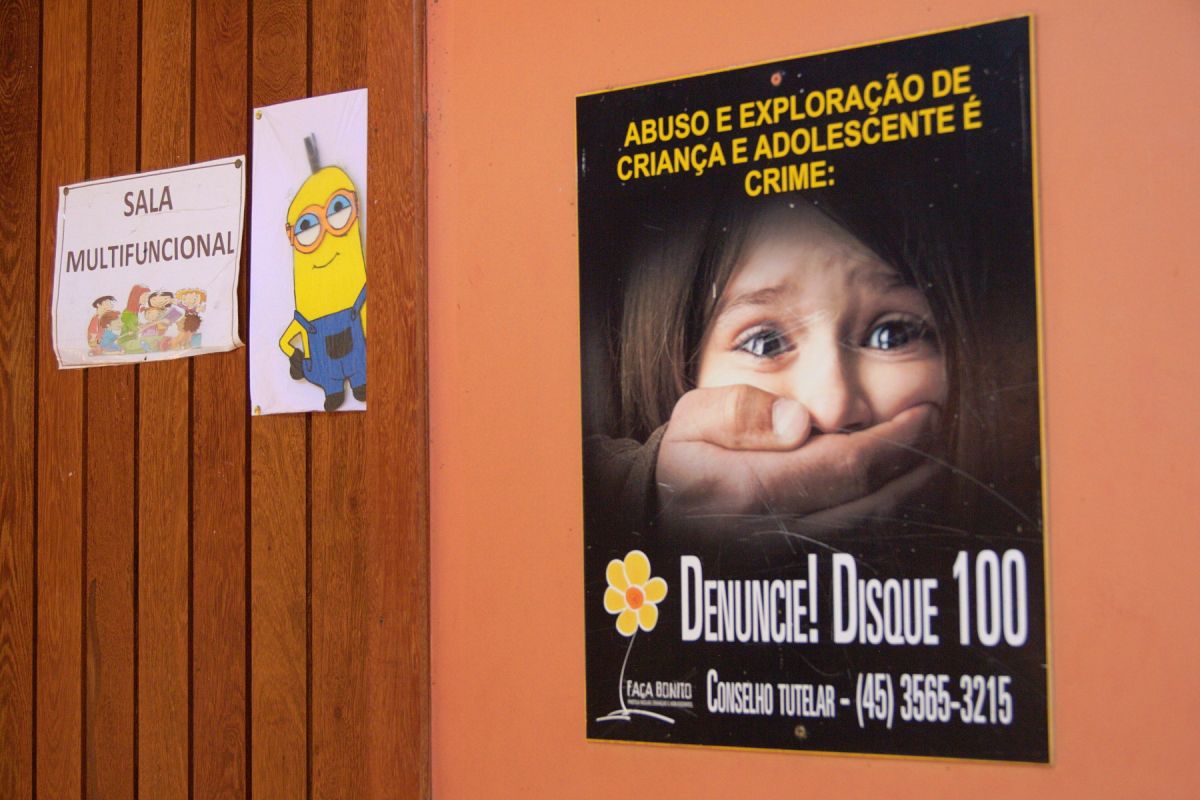When I think about women’s rights, it comes to my mind that while in some countries women’s conditions are slowly improving (like in Saudi Arabia, where women are now allowed to drive cars), in some others their freedoms were abruptly limited (think about Afghanistan). So when we went to visit the Guarani communities, our question was: what are indigenous women’s conditions, rights, and autonomy? We asked this question to Leandra, a woman from Tekoha Ocoy. Leandra is an artisan, and together with many other women in her community she produces several traditional artifacts: the production includes wood sculptures of animals, arrows and bows, ornaments, etc. Selling those products is a source of income for these women that not only allows them to have a better lifestyle but also allows them to be more autonomous from their family. Leandra is part of the women’s movement in Comissão Guarani Yvyrupa (CGY), who fights for the rights of Guarani women.

The fight is urgent and for now, it is for the women who live today, but it is also for those to come.
Fighting for rights means standing for the rights that juruas (the non indigenous people) took away from them and also struggling to protect the way of life of Guarani from the bad influence of invaders’ culture, that made greed and alcohol consumption a problem inside the communities. Defending the women means also protecting them against the violence towards them and their children. All the goals and hopes of this movement are written in the Manifesto of the Guarani Yvyrupa Women.
Leandra by the way didn’t want to talk in detail about what she means when she says “violence”, and she doesn’t explain to us if she experienced violence personally or if she witnessed it, but we could see how fierce she was when talking about the activity of the women’s movement. This surprised me, as for what I have been told before, Guarani women are usually shy to talk: that’s why Leandra stressed that women should take more courage, they should talk about what happens in their families, in their community, but she also proudly adds that the women in Ocoy are brave, more willing to speak than they used to be before.
Ocoy is not the only community where women are taking more control of their lives, and of the community as well: in Palmeirinha do Iguaçu a group of women started an entrepreneurship path as artisans and farmers. These women are part of Movimento Xondaria Jera Rete, another movement defending the rights of Guarani women. Sandra König, responsible of Outro Olhar, the association working with the Guarani that is hosting us here in Brazil, followed the progression of the women in Palmeirinha both as a group and as individuals. We went with her to Palmeirinha do Iguaçu to talk with the community about their history.
While the talk wasn’t focused on women’s role in the community, I was impressed to see that were the women the ones leading the conversation. Later Sandra told us that it didn’t use to be like that: also there women were shy, some of them almost not talking at all, not believing they had ideas good enough to be exposed. Associating together is what allowed these women to give courage to each other, to express their proposals for production and commerce of manufacts, and to become more self confident. These women are a fundamental part of their communities: that’s why I would like to wish them the best for their future and the future of their children.





